How to stop student loans from ruining your life
With national student debt topping $1 trillion, it’s no surprise that 7 million students in the U.S. defaulted on their college loans during the third quarter of 2014, according to the U.S. Department of Education,
As we’ve written previously, defaulting on your loans can have serious consequences–including damaged credit and having your wages garnished. And since student loans usually can’t be discharged in bankruptcy, many borrowers find themselves unable to repay their loans.
There are, however, ways to avoid succumbing to the peril of student loan debt and default.
A recent CNBC article featured College Financing Group co-founder Rick Ross, who gave his advice about preventing student loans from taking over your life.
Prevent student debt by choosing an affordable college
Before even starting college, Rick says it’s important to figure out which colleges you can afford and avoid borrowing too much money, Rick says.
Evaluating your college’s and major’s return on investment is key before taking out tens or hundreds of thousands of dollars in student loans.
Many colleges, such as those in the State University of New York (SUNY) system, offer a great education for half the price of private institutions. And depending on financial aid, costs can vary widely among schools.
It’s important to have a backup plan in case you find yourself looking at a $50,000 college bill you can’t afford.
Make payments as early as possible
Rick also advises that students start making payments on their unsubsidized Stafford loans while they’re in school, if possible.
Unlike subsidized Stafford loans, the the plight of student loans, the interest on these loans begins to accrue as soon as they are taken out. This can multiply quickly, adding another $3,000 to a $25,000 loan, Rick says.
Since there’s no penalty for early payment for both federal and private loans, repaying your loans early can put you at a significant advantage, helping you reduce the principal of the loan to reduce your overall interest payments over time.
Consider several repayment options
Once you’ve started repayment, you should advantage of the various federal loan repayment options, which can help you reduce your payments if you’re having trouble meeting the monthly minimum.
Under the Pay As You Earn plan, for example, your monthly payment is capped at 10 percent of your income, and the loan is forgiven after 20 years if not paid.
Graduated repayment, Income-based repayment, deferrment and forebearance are other options for students who need help paying their loans. You can find a breakdown of the differences here.
Private loans, however, don’t fall under the federal loan repayment plans. If you have several private loans with double-digit interest rates, Rick says it might be worth considering private loan consolidation to reduce your rates and/or payments.
Get help before it’s too late
If you feel like you’re drowning in student loan debt, be assured there is a way out. It’s important to take action as soon as you start to fall behind on your loans to avoid penalties and default.
We can help you find the best repayment plan for your situation. Call us toll-free at 1-888-234-3907 or fill out this form to learn about our student loan repayment services.
And for more advice on repaying your loans and avoiding default, check out the full article from CNBC.
affording college, private loan consolidation, private loans, student debt, student loan debt, student loan default, student loan delinquency, student loans
